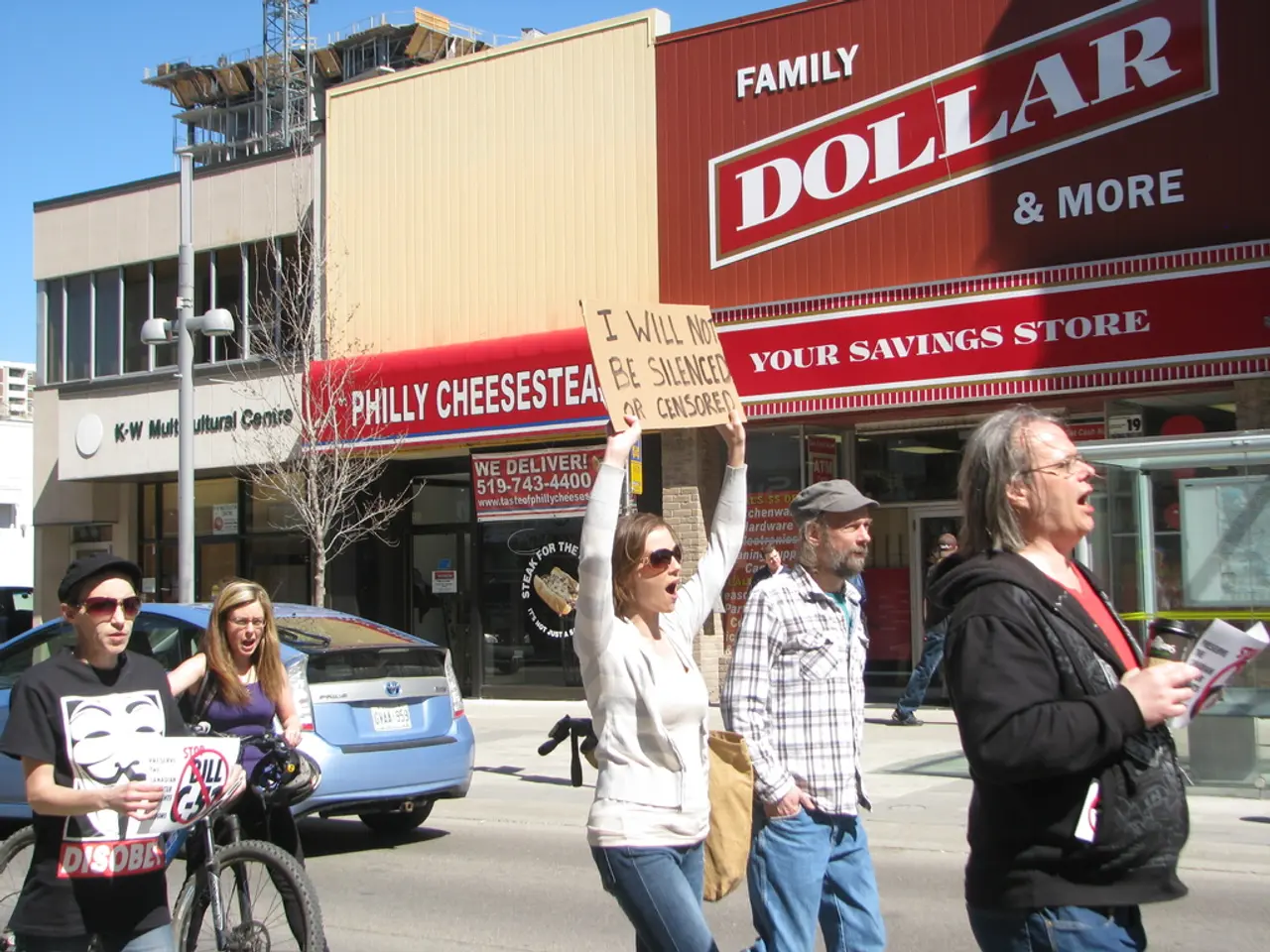Differentiating Black-Red from Standard Traffic Lights: An Examination of Unusual Signals
The Black-Red coalition, led by Chancellor Friedrich Merz, has had a rocky start to its tenure, marked by internal disputes, low public approval, and unmet expectations. After 100 days, many compare the current government's performance unfavourably to the Traffic Light coalition that collapsed last year.
The coalition, comprising Merz's Christian Democratic Union (CDU), the Christian Social Union (CSU), and the Social Democratic Party (SPD), set out with the slogan of "New beginnings" and a promise to deliver on migration control, economic growth, and welfare reform. However, several issues have arisen, including coalition mistrust, disagreements over social benefits for Ukrainian refugees, and economic policy stagnation.
One of the key sources of tension within the coalition is the Union faction, led by faction leader Spahn. MPs from both factions have expressed mistrust towards Spahn following the judges' dispute. Spahn's failure to unite his faction behind a previously agreed decision has caused distress.
The Chancellor, Merz, initially chose Spahn for the faction leadership due to his perceived ability to unite the Union MPs behind the government line. However, this relationship has been strained, adding to the coalition's internal challenges.
On the economic front, experts have criticised the coalition for slow reforms. The coalition's expansionary pension measures, such as the "mothers' pension" supplementation and no planned increase in retirement age, have raised concerns about their impact on long-term growth. The coalition also faces looming budget gaps and state elections in 2026, complicating its ability to balance austerity with reform pressures.
The coalition is also grappling with a significant financial gap of around 172 billion euros in the financial planning for 2027 to 2029. This financial strain, coupled with the coalition's internal disputes, has led to negative public perception.
Moreover, the far-right Alternative for Germany (AfD) party has gained ground, overtaking the CDU/CSU in some polls, partly due to dissatisfaction with Merz’s leadership style and communication.
Despite these challenges, the relationship between Merz and SPD leader Klingbeil is reportedly stable, according to the SPD. However, there is a lack of a common spirit beyond the leadership level in the coalition, which some analysts say is hindering its ability to deliver transformative policies.
CSU leader Söder has referred to the black-red coalition as the "last cartridge of democracy," suggesting a sense of urgency in addressing the coalition's challenges. The future of the Black-Red coalition remains uncertain, with many watching closely to see if it can overcome its initial stumbles and deliver on its promises.
References:
- BBC News
- Deutsche Welle
- The Local
- Reuters
- Politico
The family of politicians within the Black-Red coalition, particularly the Union faction led by Spahn, has faced significant issues, including mistrust, disagreements over social benefits, and coalition stagnation. These difficulties, combined with slow economic reforms and a significant financial gap, have contributed to public disapproval and a sense of uncertainty about the coalition's future. Meanwhile, the general news and policy-and-legislation sectors have been closely monitoring the coalition's performance, with experts criticizing its progress and expressing concerns about the long-term consequences of certain decisions, such as the expansionary pension measures and the lack of austere reforms.








